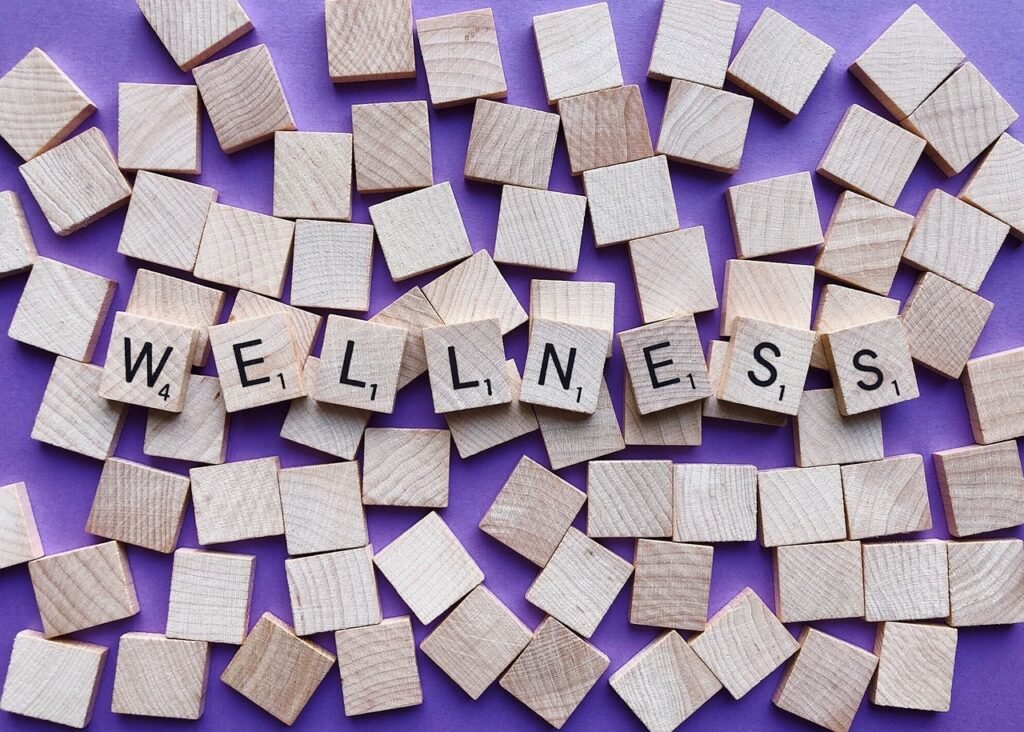
But what about 6 hours of sleep?
Is it enough for every age group? In this blog post, we will explore the effects of 6 hours of sleep on mental health and how it differs across different age groups.
So, let’s dive in and find out if 6 hours of sleep is really enough for a good night’s rest.
Table of Contents
Understanding the Importance of Sleep
Important for Overall Health and Well-being

Sleep is not just a luxury or an indulgence; it is a fundamental need.
While we often prioritize other aspects of our lives, such as work, relationships, and hobbies, sleep should not be overlooked.
It is during sleep that our bodies and minds undergo crucial processes that help us function optimally, but; Is 6 hours of sleep enough?
Cardiovascular Health
One of the key benefits of sleep is its impact on our cardiovascular health.
Lack of sleep has been linked to an increased risk of high blood pressure, which can lead to serious conditions such as heart disease and stroke.
During sleep, our blood pressure naturally decreases, giving our heart a chance to rest and recover.
Without enough sleep, this process is disrupted, and our blood pressure can remain elevated, putting strain on our cardiovascular system.
Cognitive Function and Mental Health
Sleep also plays a crucial role in our cognitive function and mental health.
It is during sleep that our brains consolidate memories and process information, allowing us to learn and retain new information more effectively.
Inadequate sleep can impair our ability to concentrate, make decisions, and solve problems.
It can also contribute to mood disorders such as depression and anxiety.
Metabolism and Weight
Furthermore, sleep is essential for regulating our metabolism and maintaining a healthy weight.
When we are sleep-deprived, our bodies produce higher levels of the hormone ghrelin, which stimulates appetite, and lower levels of the hormone leptin, which suppresses appetite.
This imbalance can lead to increased hunger and cravings, making it more difficult to make healthy food choices.
Additionally, lack of sleep can affect our body’s ability to process and regulate blood sugar levels, increasing the risk of developing conditions like diabetes.
Sleep Apnea
Sleep apnea is another condition that highlights the importance of sleep.
Sleep apnea is characterized by interrupted breathing during sleep, leading to poor quality sleep and daytime drowsiness.
It is associated with an increased risk of cardiovascular problems, such as high blood pressure and heart disease.
Treating sleep apnea and ensuring quality sleep can help improve overall health and reduce the risk of these complications.
Examining the Needs: Is 6 hours of sleep enough at Different Age Groups?
Sleep needs vary across different age groups, with each stage of life having its own unique requirements.
Understanding these differences is crucial in order to prioritize sleep and ensure that we are giving our bodies and minds the rest they need to function at their best.
Infants and Young Children

Infants and young children require the most sleep, with newborns needing around 14-17 hours a day, including short naps throughout.
As they grow, this gradually decreases, with toddlers needing about 11-14 hours, preschoolers requiring 10-13 hours, and school-age children benefiting from 9-11 hours of sleep each night.
Teenagers
Teenagers are notorious for their late nights and early school start times, but they actually need around 8-10 hours of sleep for optimal functioning.
During adolescence, changes in the body’s internal clock make it harder for teens to fall asleep early, leading to a tendency to stay up later and sleep in longer.
Unfortunately, early school start times can disrupt their natural sleep patterns and lead to chronic sleep deprivation.
Adults ( Aged 18-64)
This age group can do with 7-9 hours of good sleep.
However, studies have shown that many adults fail to meet these recommendations, with busy work schedules, family obligations, and a variety of other factors often getting in the way.
It’s important to prioritize sleep and establish healthy bedtime routines in order to ensure adequate rest.
Older Adults (Over 65)

For older adults over 65, sleep needs may decrease slightly to 7-8 hours per night.
However, sleep problems are more common in this age group, with issues such as insomnia, sleep apnea, and nighttime awakenings becoming more prevalent.
It’s important for older adults to address these issues and seek treatment if necessary, as sleep is vital for maintaining physical and cognitive health.
While these recommended sleep durations serve as general guidelines, it’s important to remember that individual sleep needs can vary.
Some people may naturally require more or less sleep than others, and it’s essential to listen to your body and prioritize sleep accordingly.
If you consistently wake up feeling refreshed and alert, you are likely getting enough sleep.
However, if you constantly feel tired and struggle with daytime drowsiness, it may be a sign that you need to make adjustments to your sleep routine.
In the next section, we will dive deeper into the myth of whether 6 hours of sleep is enough and explore whether it truly is enough for every age group.
Let’s debunk the myth and uncover the truth about the impact of inadequate sleep on our mental health and overall well-being.
Debunking the Myth: Is 6 Hours of Sleep Truly Enough?
In today’s fast-paced world, where it seems like there’s always something more important to do than getting a good night’s rest.
Many people believe that they can function perfectly fine on just 6 hours of sleep, but is this really true?
In this section, we will debunk the myth that 6 hours of sleep is enough for every age group and explore the detrimental effects of chronic sleep deprivation.
While it’s true that some people may naturally require less sleep than others, the vast majority of individuals need more than 6 hours of sleep to function optimally.
The National Sleep Foundation recommends for adults from the ages of 18 to 64 should plan for 7-9 hours of good quality sleep per night, while those over 65 may need slightly less at 7-8 hours.
This is because sleep plays a vital role in our physical and mental well-being.
The Effects of Lack of Adequate Sleep

In Adults
When we consistently deprive ourselves of sleep, we start to experience a range of negative effects on our health.
Inadequate sleep has been linked to a higher risk of chronic conditions such as obesity, diabetes, and heart disease.
It weakens our immune system, making us more susceptible to illnesses.
It impairs our cognitive function, making it difficult to concentrate, learn, and make decisions.
It also takes a toll on our mental health, increasing the risk of developing mood disorders such as depression and anxiety.
In Adults and Teenagers
“Is 6 hours of sleep enough?” becomes a critical question, especially when considering the pronounced consequences of inadequate sleep for children and teenagers.
Sleep deprivation can significantly hinder their growth and development, negatively impacting cognitive abilities and academic performance.
Furthermore, it can contribute to behavioral issues and emotional instability, highlighting the importance of sufficient rest in these formative years.
While some individuals may claim to function well on just 6 hours of sleep, research has shown that this is often a result of adapting to chronic sleep deprivation rather than true resilience.
Even if you don’t feel immediately affected by lack of sleep, it doesn’t mean that your body and mind aren’t suffering in the long run.
It’s important to remember that sleep is not a luxury, but a fundamental need.
It’s essential for our overall health and well-being, regardless of our age.
So, rather than trying to cut corners on sleep, we should prioritize it and make the necessary lifestyle adjustments to ensure we are getting the recommended amount of rest.
In the next section, we delve into the crucial query, “Is 6 hours of sleep enough?” for our mental well being?
We will also discuss strategies to improve sleep duration and quality.
It’s time to take sleep seriously and provide our bodies and minds with the care they deserve, recognizing the essential role of adequate rest in our overall well-being.
Impact of Chronic Sleep Deprivation
We all know the feeling of tossing and turning at night, unable to fall asleep.
But what happens when this becomes a regular occurrence?
Chronic sleep deprivation, or consistently getting less sleep than your body needs, will take its toll on your health and well being.
Cognitive Impairment
Exploring the question, “Is 6 hours of sleep enough?” we find that one of the most immediate effects of not meeting this threshold is cognitive impairment.
Insufficient sleep makes concentrating, learning new information, and decision-making more challenging.
This issue becomes particularly acute in environments like work or school, where focus and productivity are paramount.
Furthermore, sleep deprivation can lead to significant memory problems, complicating the retention and recall of information.
Mood Disorders

In addition to cognitive impairment, chronic sleep deprivation can take a toll on your emotional well-being.
Studies have shown that lack of sleep is closely linked to an increased risk of mood disorders such as depression and anxiety.
When you’re sleep-deprived, you’re more likely to experience negative emotions and have difficulty regulating your mood.
This can lead to a decrease in overall happiness and an increase in stress levels.
Immunity and Physical Health
Furthermore, chronic sleep deprivation can negatively impact your physical health.
It weakens your immune system, making you more susceptible to illnesses such as the common cold and flu.
It also increases your risk of developing chronic conditions such as obesity, diabetes, and heart disease.
In addressing the question, “Is 6 hours of sleep enough?” research reveals a concerning trend: individuals who consistently receive less than seven hours of sleep per night face a higher risk of developing cognitive and health conditions compared to those who adhere to the recommended sleep duration.
Relationships and Social Behaviour
Not only does chronic sleep deprivation affect your mental and physical health, but it can also impact your relationships and social interactions.
When you’re sleep-deprived, you’re more likely to experience irritability and have difficulty managing your emotions.
This can strain your relationships with loved ones and lead to conflicts. It can also make it harder to connect with others and enjoy social activities.
So, what can you do to combat chronic sleep deprivation and improve your sleep duration and quality?
Stay tuned for the next section of this blog post, where we will explore tips and strategies to help you get a better night’s sleep.
In the meantime, it’s important to recognize the detrimental effects of chronic sleep deprivation and prioritize sleep as an essential part of your overall well-being.
Remember, getting enough sleep is not a luxury, but a necessity for a healthy and fulfilling life.
Tips to Improve Sleep Duration and Quality

Sleep is a vital part of our overall health and well-being, but many of us struggle to get the recommended amount of rest each night.
If you find yourself tossing and turning, unable to fall asleep, or waking up feeling tired and groggy, it may be time to make some adjustments to your sleep routine.
Here are some tips to help improve your sleep duration and quality:
- Maintain a consistent sleep schedule by going to bed and waking up at the same time each day, including weekends. This helps regulate your body’s internal clock, making it easier to fall asleep and wake up feeling refreshed.
- Develop a calming bedtime routine to signal to your body that it’s time to unwind and prepare for sleep. This could involve activities such as reading a book, taking a warm bath, or practicing relaxation techniques like deep breathing or meditation.
- Design a sleep-friendly environment by ensuring your bedroom is dark, quiet, and set to a comfortable temperature. Use blackout curtains, earplugs, or a white noise machine to minimize disturbances that could disrupt your sleep.
- Reduce screen exposure before bed, as the blue light from electronic devices can disrupt your body’s production of melatonin, the hormone that regulates sleep. Try to avoid using screens, such as smartphones or laptops, at least an hour before bed. Instead, engage in relaxing activities that don’t involve screens.
- Limit caffeine and alcohol intake: Caffeine is a stimulant that can make it difficult to fall asleep, so try to avoid consuming caffeinated beverages, such as coffee or tea, in the late afternoon or evening. Similarly, while alcohol may make you feel drowsy initially, it can disrupt your sleep patterns and lead to poor-quality sleep.
- Exercise regularly to support better sleep quality. However, aim to complete your workout at least a few hours before bedtime, as exercising too close to bedtime may make it more difficult to fall asleep.
- Create a comfortable sleep environment by investing in a supportive mattress, pillows, and bedding that promote relaxation and help your body rest properly.If you have trouble with temperature regulation, consider using breathable fabrics or adjusting the thermostat in your bedroom.
- Manage stress and anxiety: High levels of stress and anxiety can make it difficult to fall asleep and stay asleep. Find healthy coping mechanisms that work for you, such as practicing mindfulness, journaling, or talking to a trusted friend or therapist.
Remember, improving sleep duration and quality takes time and consistency.
If You Want to Take Your Sleep Quality to the Next Level, Try These:
BedJet 3 ( Size Bed or Mattress)
Nectar Premier Copper Hybrid Mattress king
Other Articles to Read:
From Fatigue to Focus: Enhancing Brain Function with These Dopamine Supplements
Unlock the Benefits of Dr Berg Supplements
What Do People Really Think? A Deep Dive into Dr. Gundry Reviews





